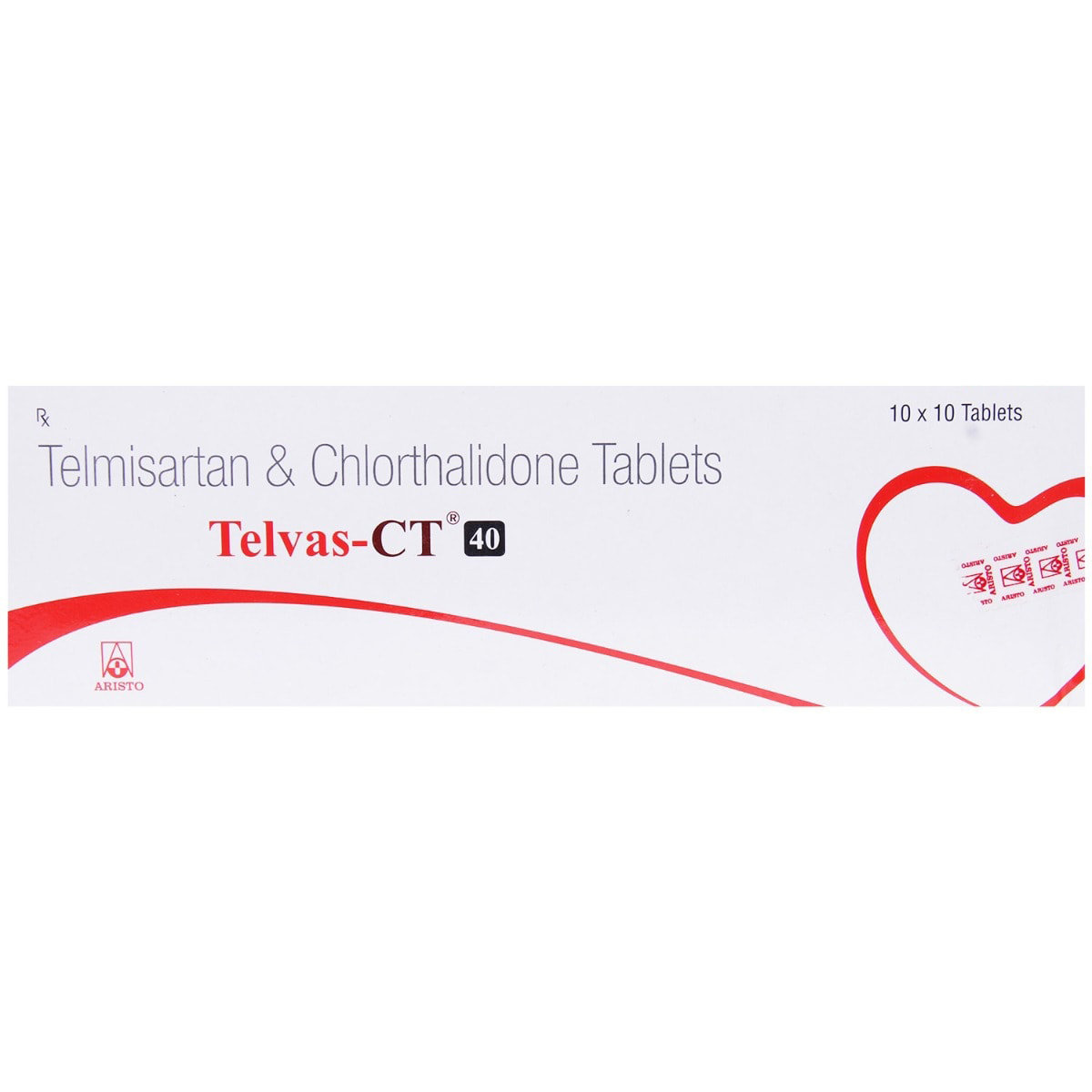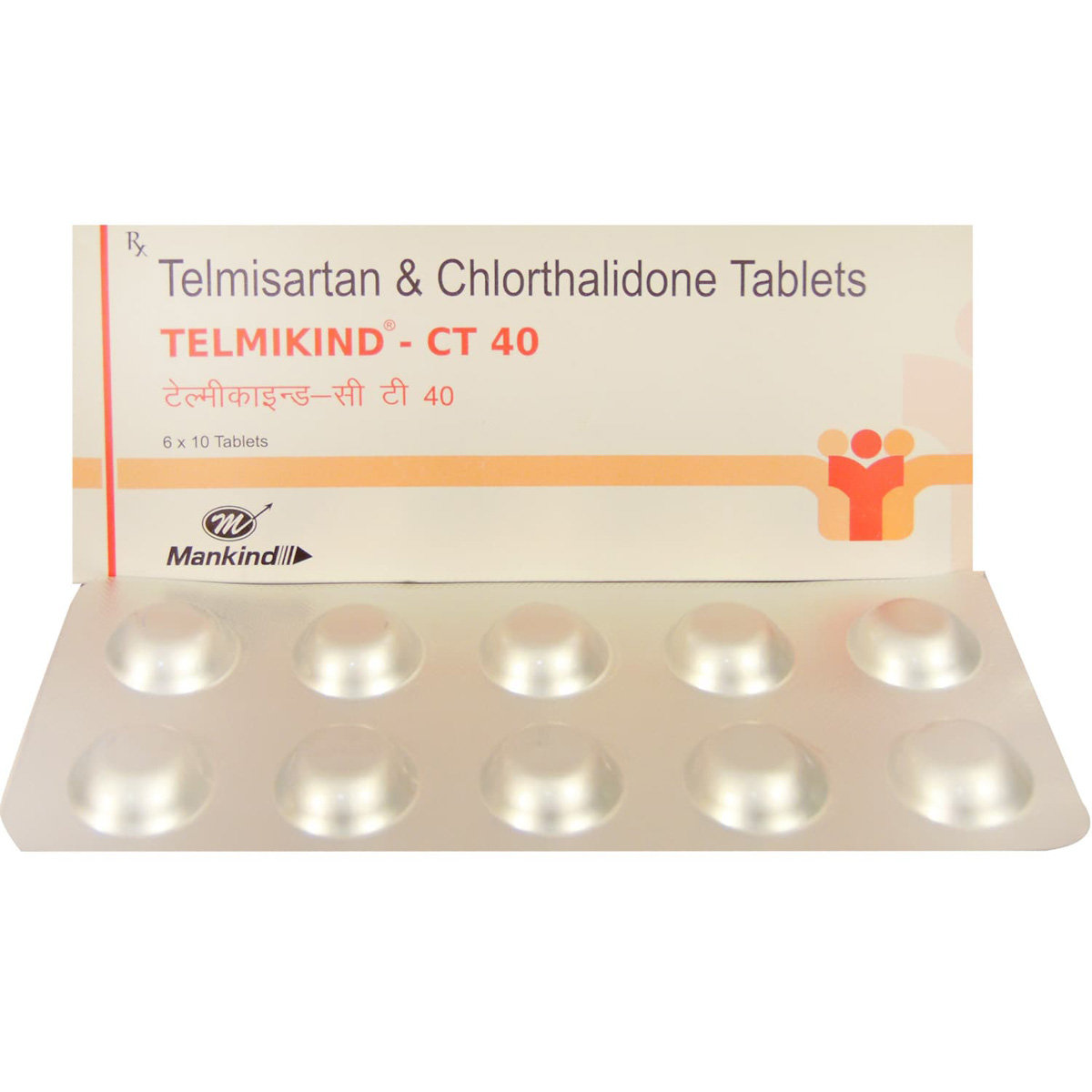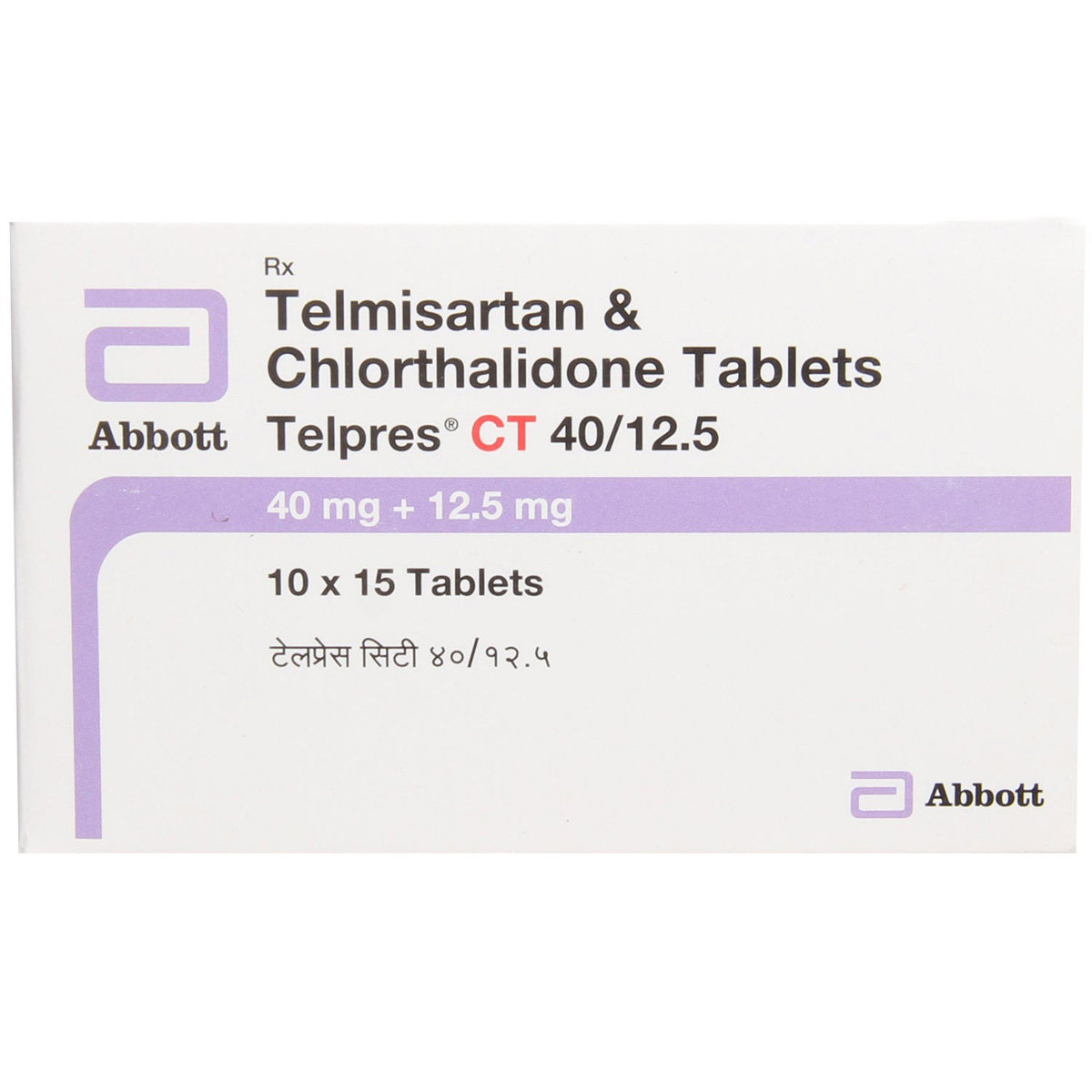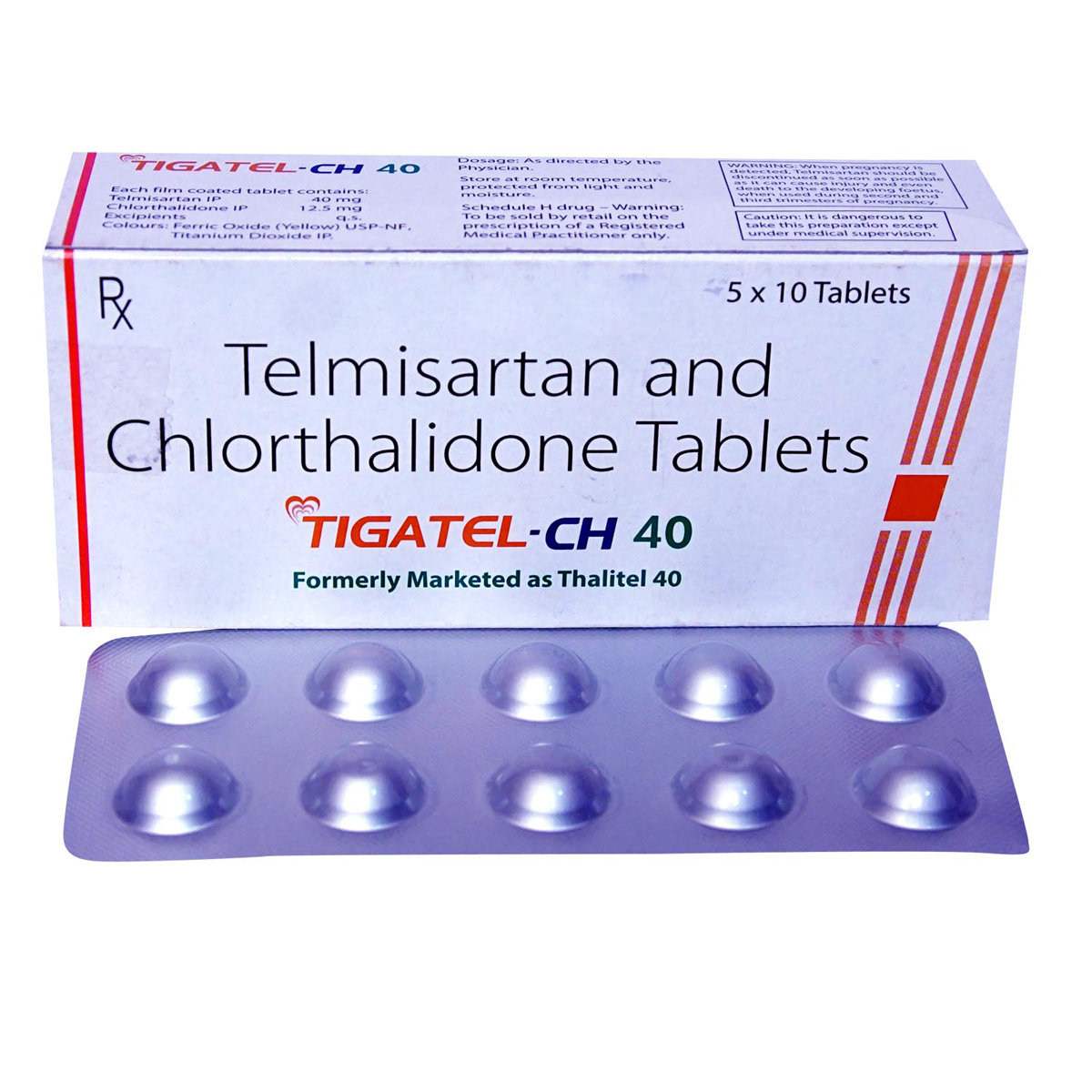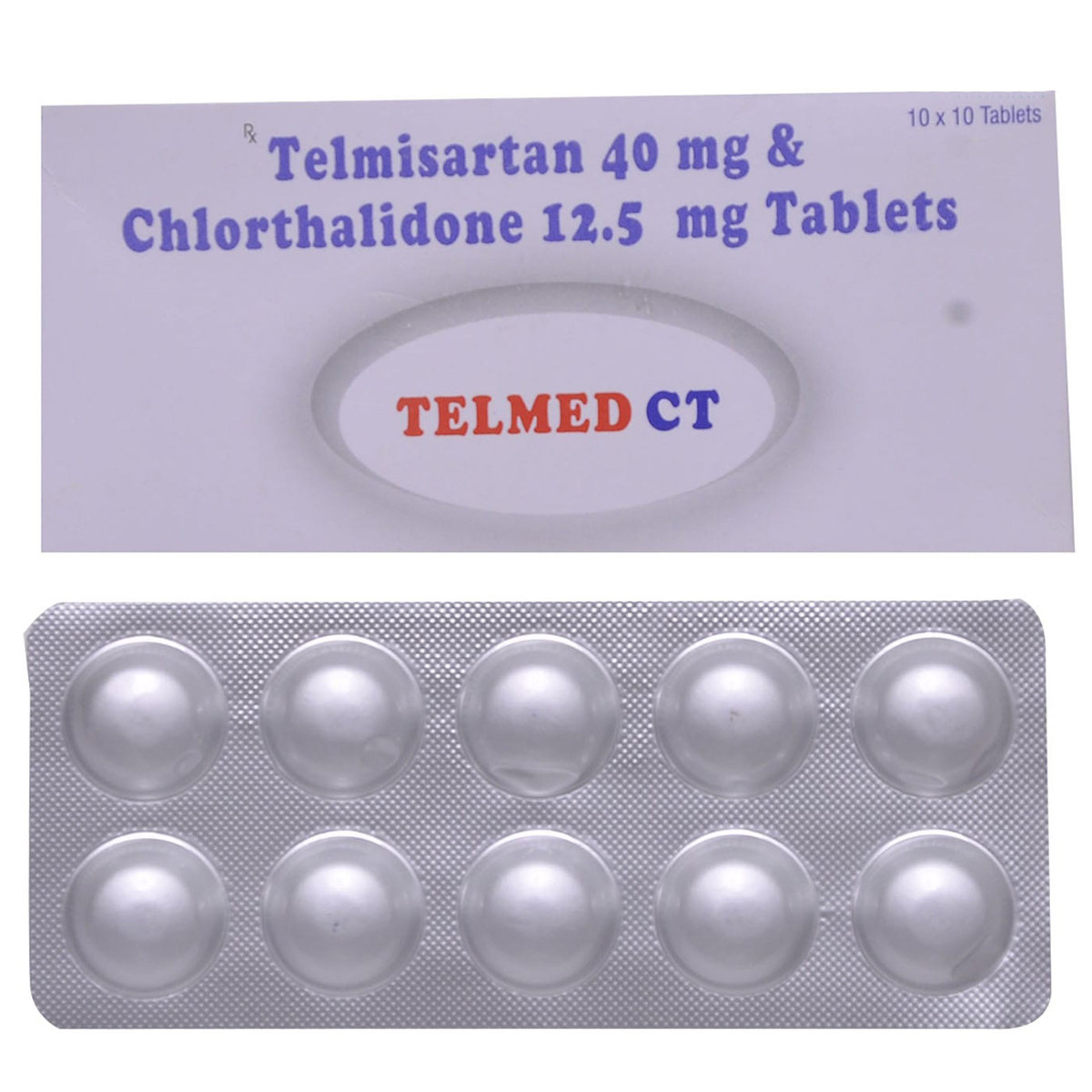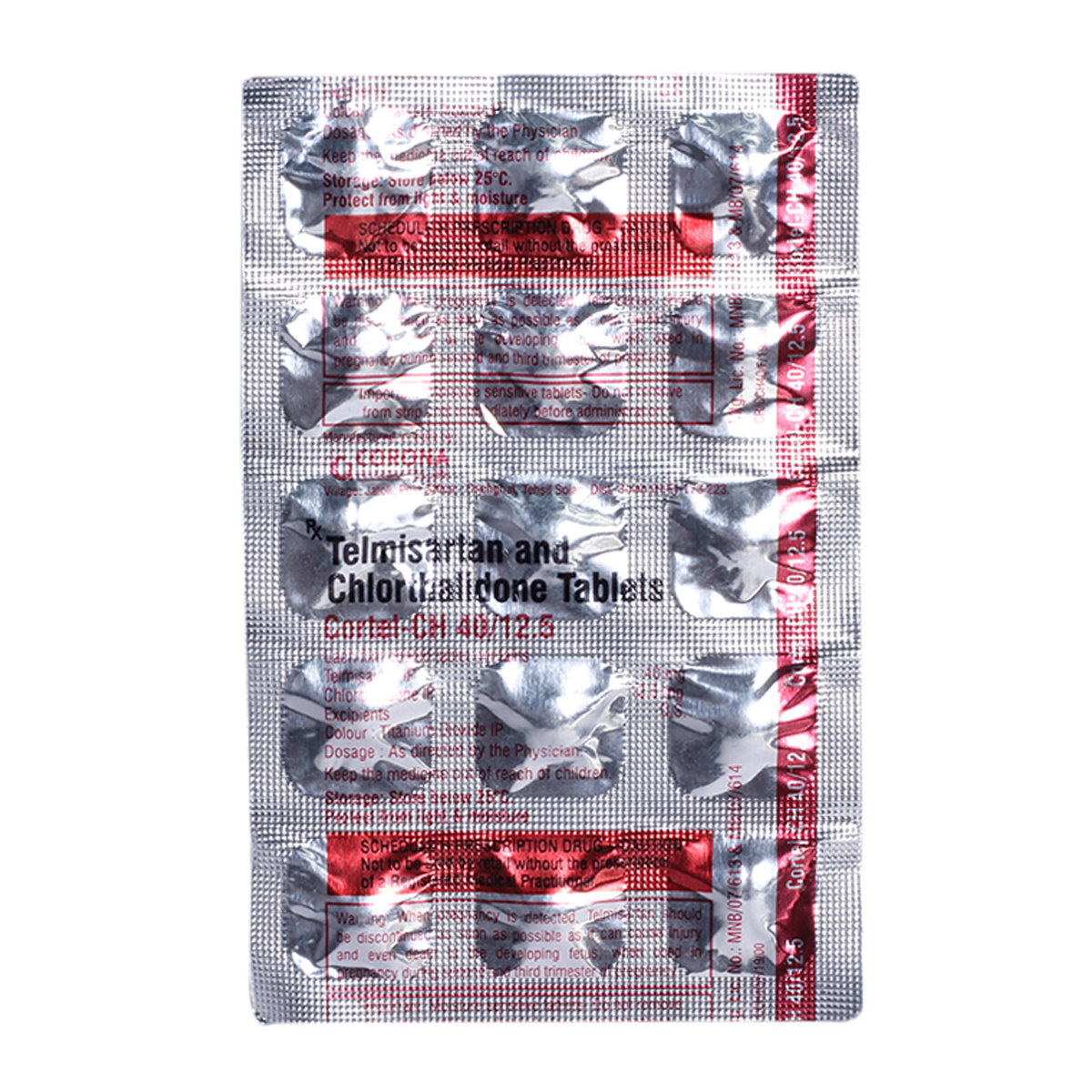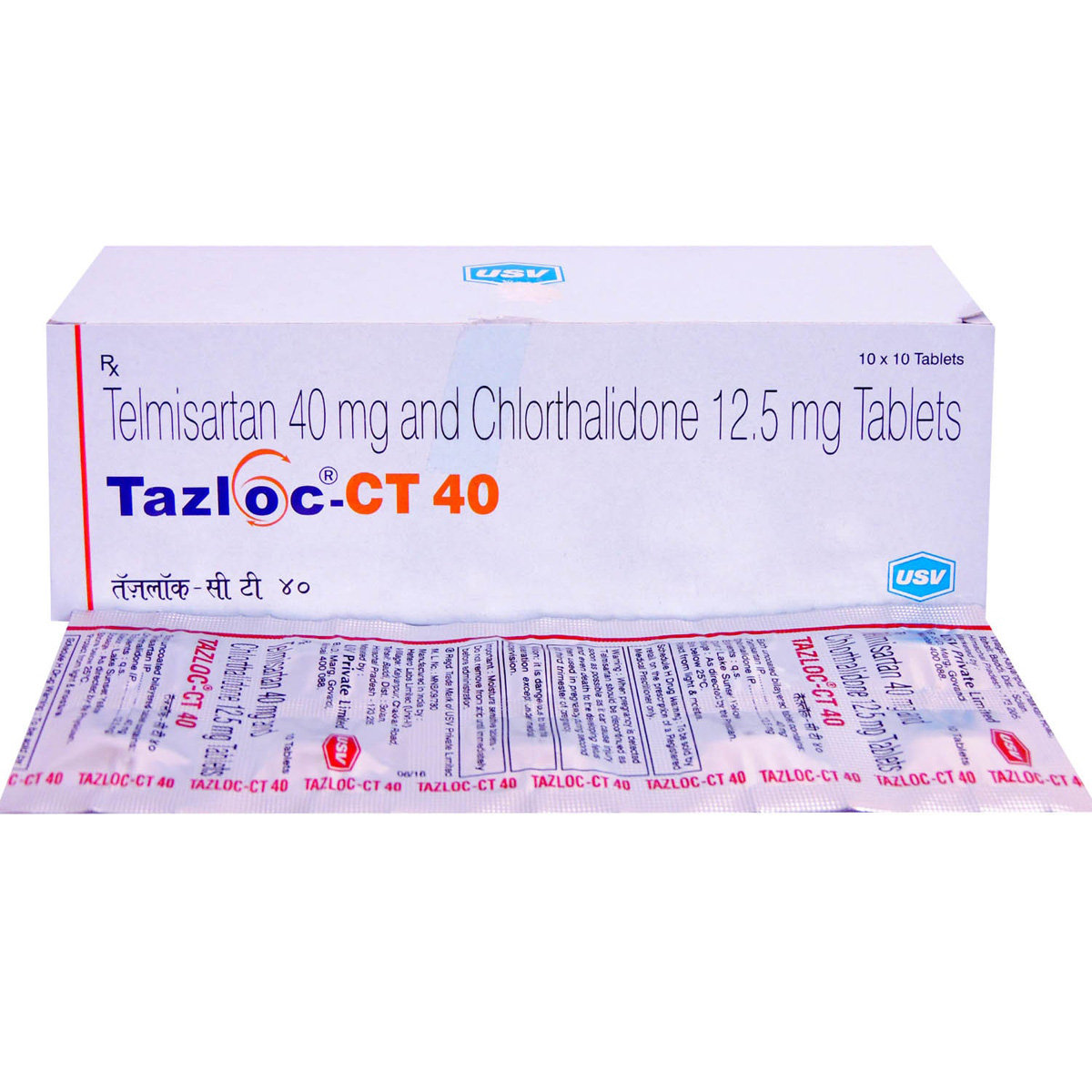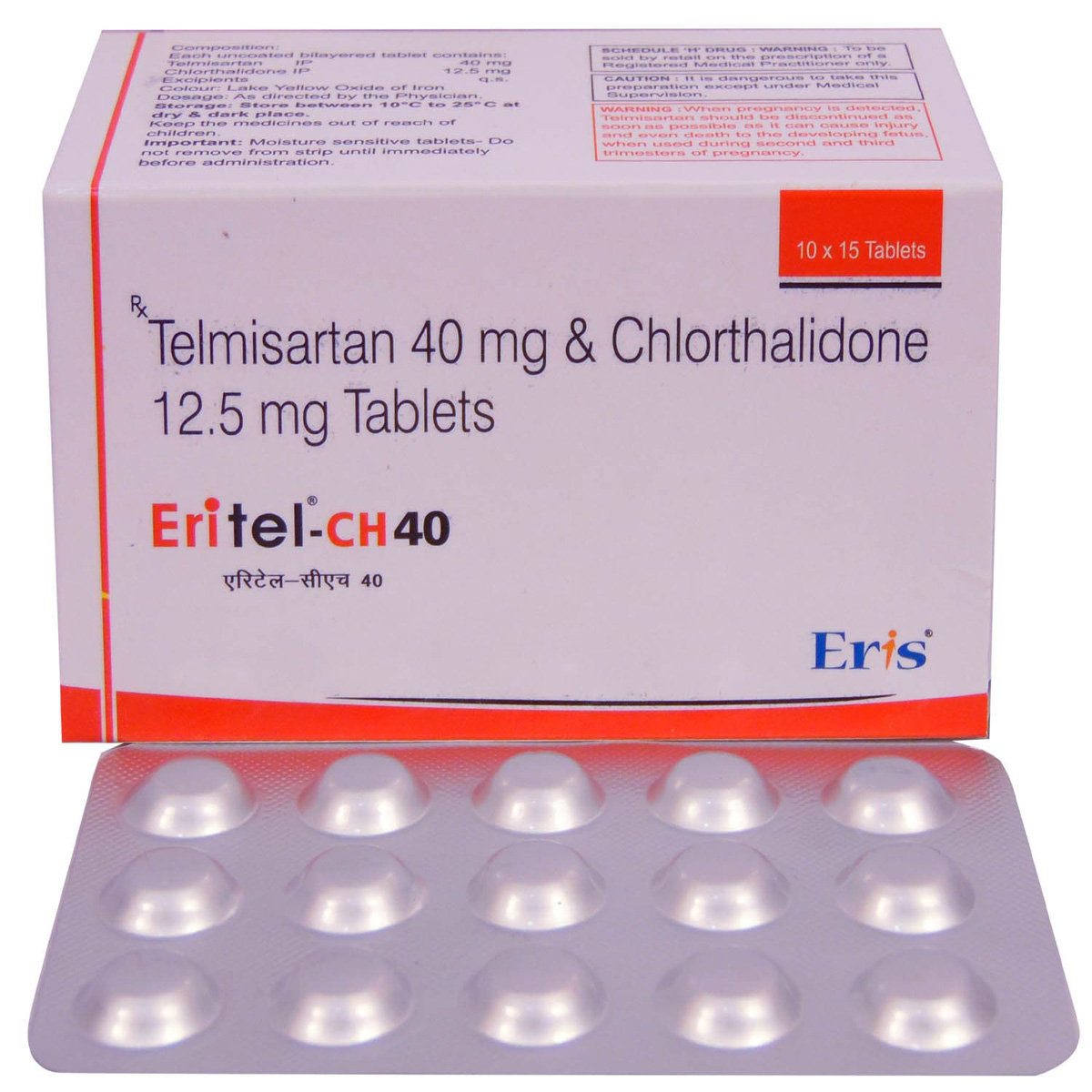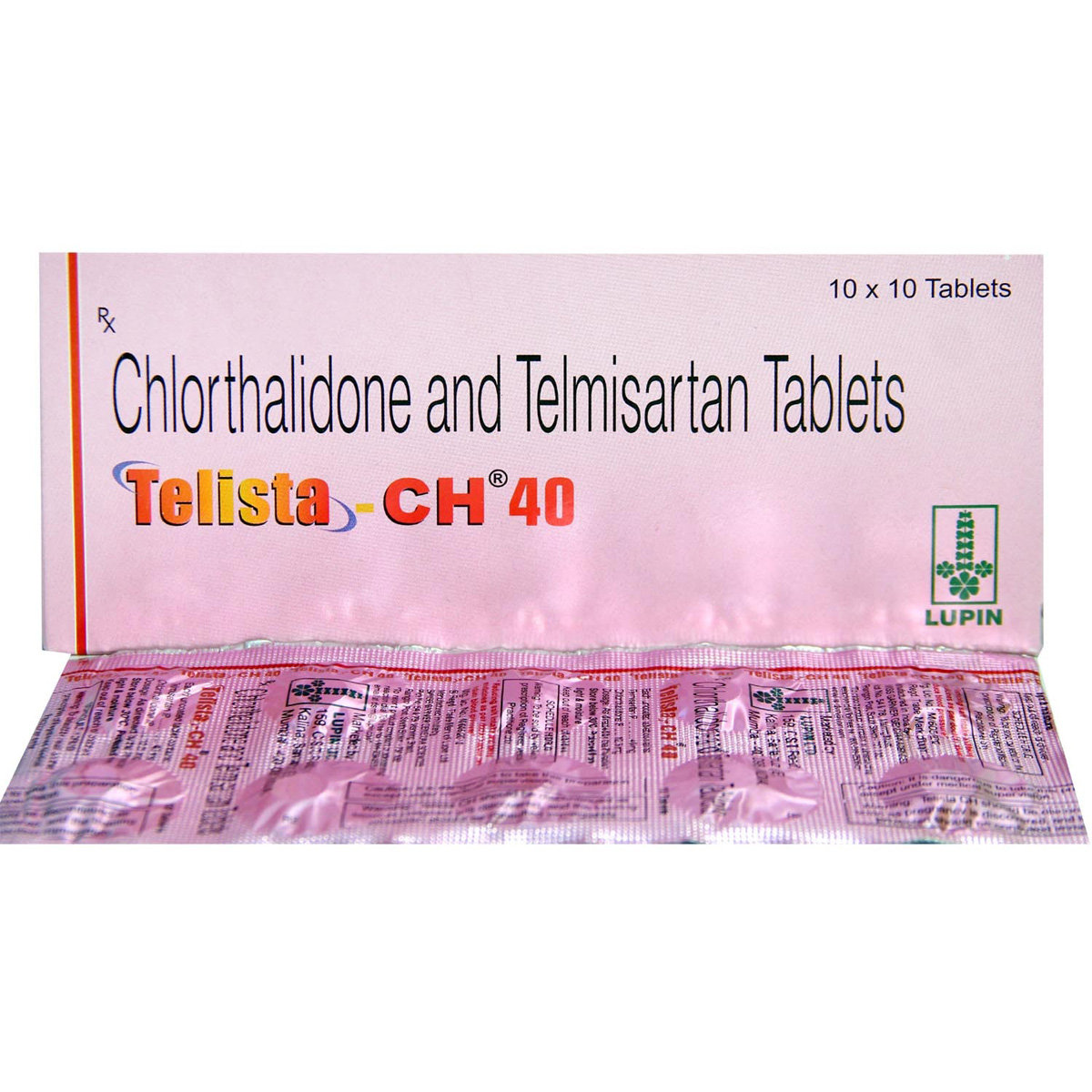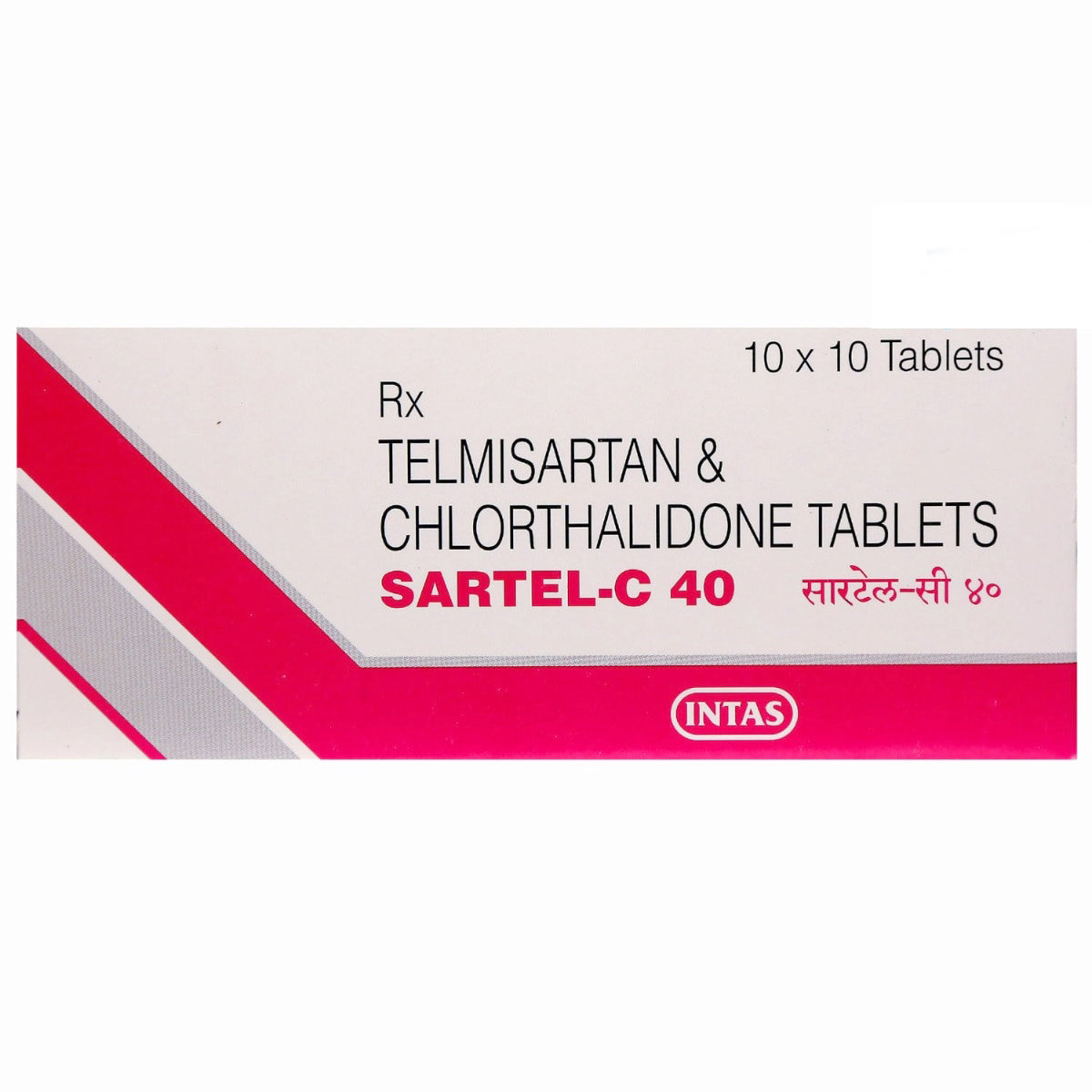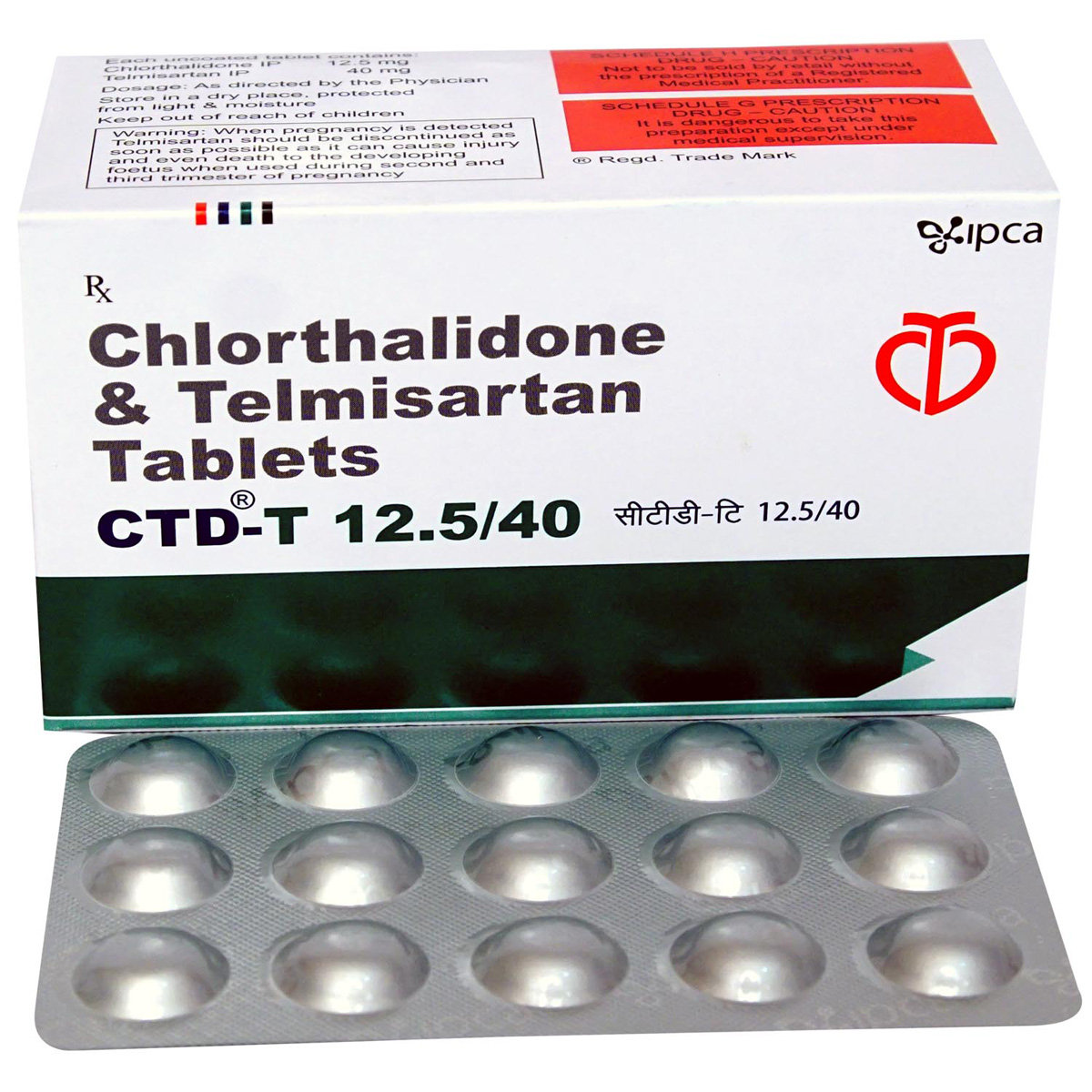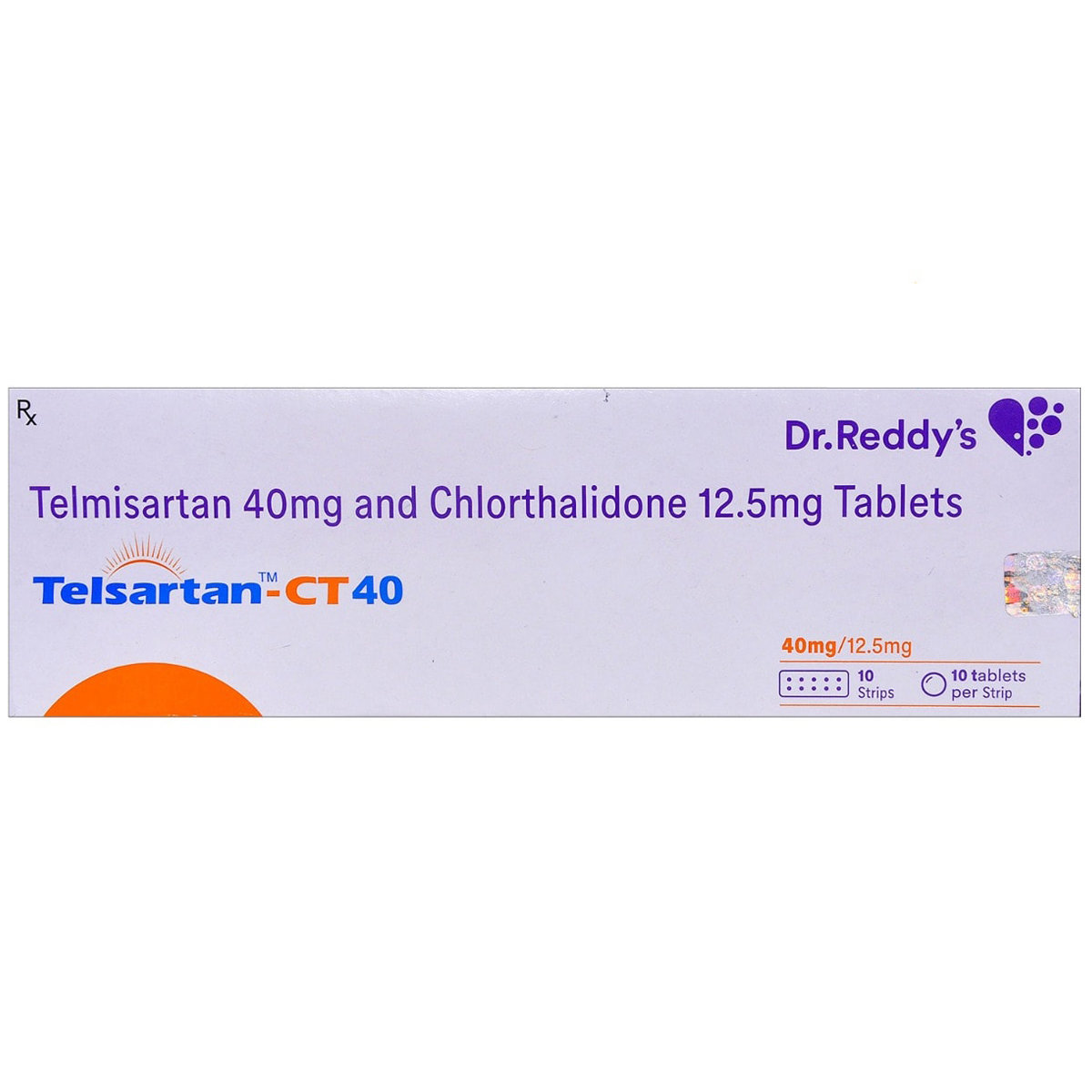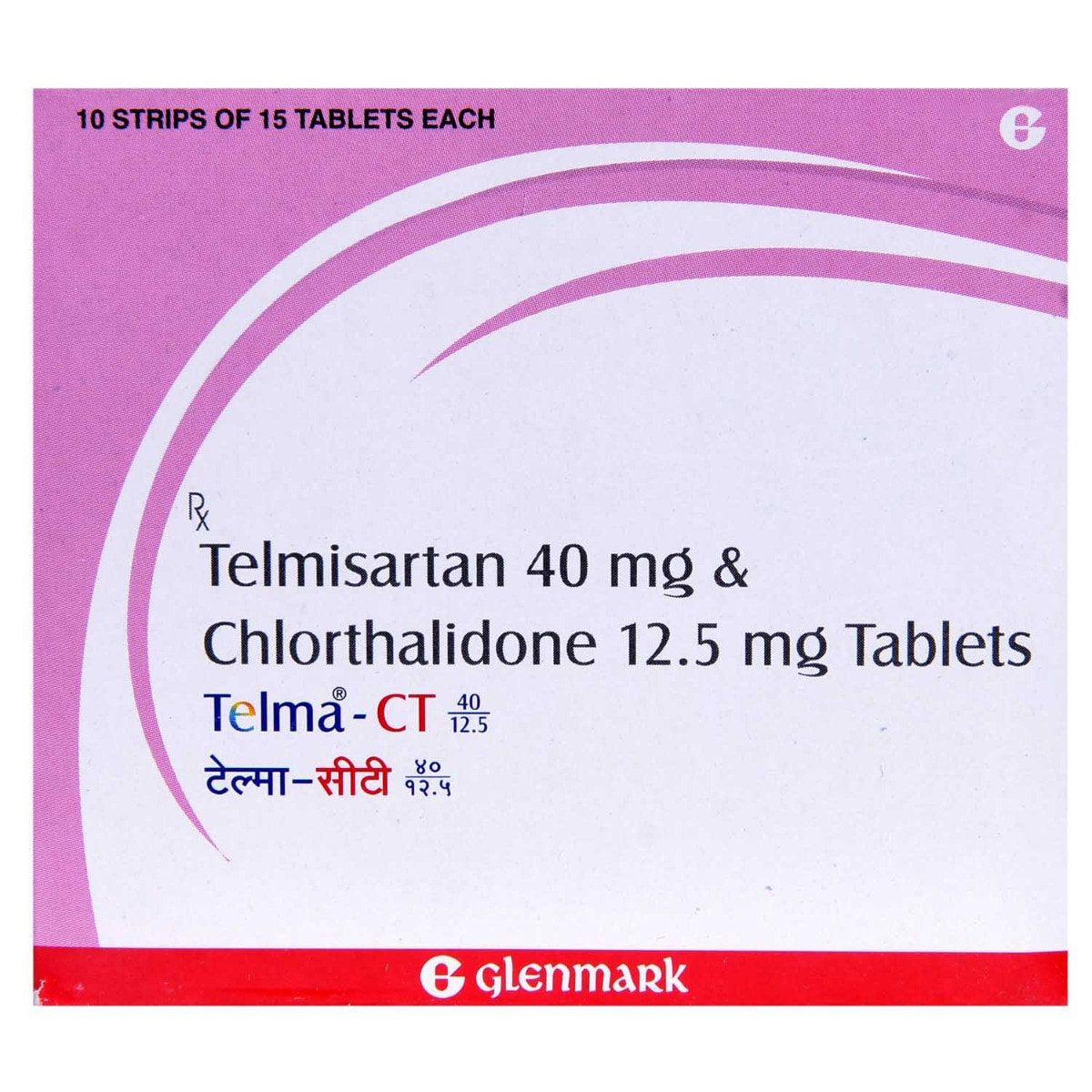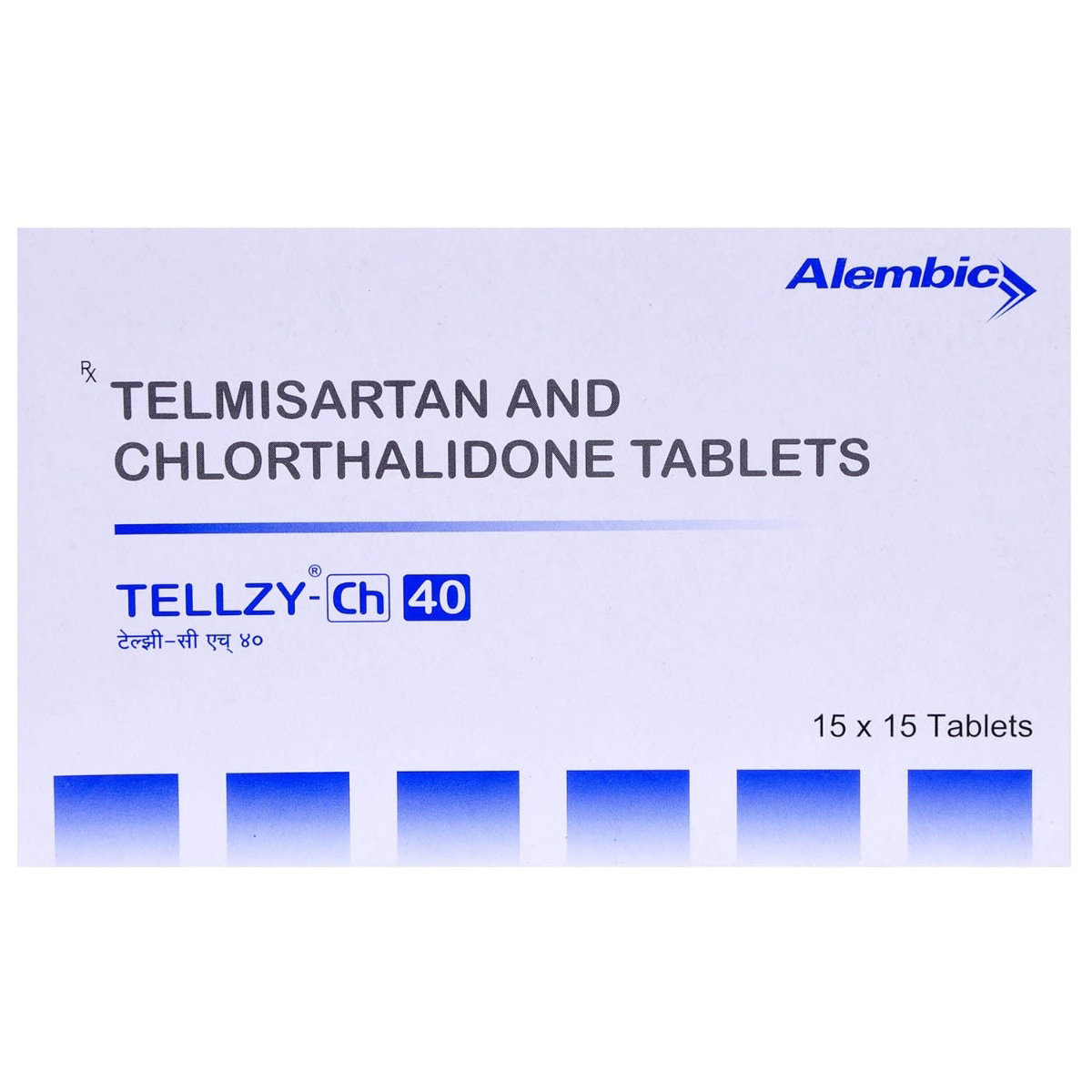Bitelsar 40 mg Tablet 10's
MRP ₹95
(Inclusive of all Taxes)
₹14.3 Cashback (15%)
Provide Delivery Location
Online payment accepted
 Prescription drug
Prescription drugWhats That
Composition :
Manufacturer/Marketer :
Consume Type :
Expires on or after :
Return Policy :
NPPA :
About Bitelsar 40 mg Tablet
Bitelsar 40 mg Tablet belongs to the class of anti-hypertensives primarily taken to treat hypertension (high blood pressure). Hypertension or high blood pressure is a life-long or chronic condition in which the blood pressure against the artery wall becomes too high. It can lead to the risk of heart diseases, like heart attack and stroke.
Bitelsar 40 mg Tablet is a combination of Telmisartan (angiotensin II receptor antagonist) and Chlorthalidone (thiazide diuretic or water pill). Telmisartan is an angiotensin receptor blocker that helps to relax and widen the blood vessels (arteries). Chlorthalidone is a diuretic that prevents absorption of excess salt in the body, preventing fluid retention. Together it lowers blood pressure and prevents the risk of any future stroke, heart attack, and oedema (fluid retention).
You can take Bitelsar 40 mg Tablet with food or an empty stomach. It should be swallowed whole with a glass of water. Your doctor will advise you on how often you take your tablets based on your medical condition. In some cases, you may experience dizziness, feeling tired, skin ulcers, diarrhoea, nausea diarrhoea, back pain, and cold/flu symptoms. Most of these side effects of Bitelsar 40 mg Tablet do not require medical attention and gradually resolve over time. However, if the side effects are persistent, reach out to your doctor.
Do not use potassium supplements or salt substitutes unless the doctor has told you. In rare cases, Bitelsar 40 mg Tablet can cause a condition that results in a skeletal muscle problem, leading to further kidney failure. If you notice unexplained muscle pain, dark colour urine, tenderness, or weakness, especially if you also have a fever or unexplained tiredness, immediately contact the doctor. If you suspect pregnancy while taking Bitelsar 40 mg Tablet , tell your doctor right away. Bitelsar 40 mg Tablet should not be taken if you are breastfeeding as Bitelsar 40 mg Tablet can pass into breast milk, so before starting Bitelsar 40 mg Tablet , you need to stop nursing or do not take Bitelsar 40 mg Tablet while breastfeeding. Besides this, you should not use the Bitelsar 40 mg Tablet if you are unable to urinate. If you have diabetes, do not use Bitelsar 40 mg Tablet with any medication that contains aliskiren (a blood pressure medicine). Before taking Bitelsar 40 mg Tablet , tell your doctor if you have ever had liver disease, kidney failure, glaucoma (increased eye pressure), high or low levels of magnesium or potassium in your blood, have allergies or asthma, lupus (an autoimmune disease), diabetes, or an allergy to penicillin or sulfa drugs.
Uses of Bitelsar 40 mg Tablet
Directions for Use
Key Benefits
Bitelsar 40 mg Tablet belongs to the class of anti-hypertensives primarily taken to treat hypertension (high blood pressure). Bitelsar 40 mg Tablet is a combination of Telmisartan (angiotensin II receptor antagonist) and Chlorthalidone (thiazide diuretic or water pill). Bitelsar 40 mg Tablet works by relaxing and widening the blood vessels (arteries), making the heart more efficient at pumping blood throughout the body. It helps to lower high blood pressure, thus reduces the chances of future heart attack and stroke. Besides this, it prevents excessive water and electrolytes (like sodium, potassium, etc.) from the body through urine which can otherwise raise high blood pressure. In addition to this, Bitelsar 40 mg Tablet also reduces the future risk of any stroke or heart attack.
Storage
- Inform your doctor about the symptoms you're experiencing due to medication.
- Your doctor may adjust your treatment plan, which could include changing your medication, adding new medications, or offering advice on managing your symptoms.
- Practice good hygiene, including frequent handwashing, avoiding close contact with others, and avoiding sharing utensils or personal items.
- Stay hydrated by drinking plenty of fluids to help loosen and clear mucus from your nose, throat, and airways.
- Get plenty of rest and engage in stress-reducing activities to help your body recover. If your symptoms don't subside or worsen, consult your doctor for further guidance.
- Talk to your doctor about your back pain and potential medication substitutes or dose changes.
- Try yoga or Pilates and other mild stretching exercises to increase flexibility and strengthen your back muscles.
- To lessen the tension on your back, sit and stand upright and maintain proper posture.
- To alleviate discomfort and minimize inflammation, apply heat or cold packs to the afflicted area.
- Under your doctor's supervision, think about taking over-the-counter painkillers like acetaminophen or ibuprofen.
- Make ergonomic adjustments to your workspace and daily activities to reduce strain on your back.
- To handle tension that could make back pain worse, try stress-reduction methods like deep breathing or meditation.
- Use pillows and a supportive mattress to keep your spine in the right posture as you sleep.
- Back discomfort can worsen by bending, twisting, and heavy lifting.
- Speak with a physical therapist to create a customized training regimen to increase back strength and flexibility.
- Consult your doctor if you experience symptoms of sinusitis, such as nasal congestion, facial pain, or headaches, which may be triggered by your medication.
- Your doctor may adjust your treatment plan by changing your medication, adding new medications, or providing guidance on managing your sinusitis symptoms.
- Practice good hygiene, including frequent handwashing, avoiding close contact with others, and avoiding sharing utensils or personal items.
- If your doctor advises, you can use nasal decongestants or saline nasal sprays to help relieve nasal congestion and sinus pressure.
- To help your body recover, get plenty of rest, stay hydrated, and engage in stress-reducing activities. If your symptoms persist or worsen, consult your doctor for further guidance.
- Drink water or other clear fluids.
- To prevent worsening of pain, limit intake of tea, coffee, or alcohol.
- Include bland foods like rice, toast, crackers, and rice in your diet.
- Avoid lying down immediately after eating as it may cause indigestion or heartburn.
- Avoid acidic and spicy food as it may cause indigestion.
- If you experience low blood pressure symptoms like dizziness, lightheadedness, or fainting while taking medication, seek immediate medical attention.
- Make lifestyle modifications and adjust your medication regimen under medical guidance to manage low blood pressure.
- As your doctor advises, regularly check your blood pressure at home. Record your readings to detect any changes and share them with your doctor.
- Fluid intake plays a vital role in managing blood pressure by maintaining blood volume, regulating blood pressure, and supporting blood vessel function. Drinking enough fluids helps prevent dehydration, maintain electrolyte balance, and regulate fluid balance.
- Take regular breaks to sit or lie down if you need to stand for long periods.
- When lying down, elevate your head with extra pillows to help improve blood flow.
- Avoid heavy exercise or strenuous activities that can worsen low blood pressure.
- Wear compression socks as your doctor advises to enhance blood flow, reduce oedema, and control blood pressure.
- If symptoms persist or worsen, or if you have concerns about your condition, seek medical attention for personalized guidance and care.
- Avoid triggers like alcohol, caffeine, and energy drinks.
- Try relaxation techniques such as yoga, meditation, or deep breathing.
- Exercise regularly as it helps maintain heart health.
- Follow a nutritious and balanced diet.
- Gently massage the affected area using your hands or a massager.
- Light exercises such as walking or climbing stairs may help the muscles return to normal.
- Apply heat/ice to the affected area.
- Drink electrolyte-rich fluids.
Drug Warnings
Bitelsar 40 mg Tablet should not be given to the people allergic to Bitelsar 40 mg Tablet or any of its ingredients, have low blood pressure (less than 90 mm of Hg), have had a heart attack, kidney disease, liver disease, pregnant women, or planning to get pregnant and breastfeeding women. It should be used with caution in patients who have diabetes. Besides this, it is contraindicated in low blood pressure (hypotension), cardiogenic shock (sudden stopping of blood flow to the heart), and aortic stenosis (heart valve problem). Bitelsar 40 mg Tablet can pass into breast milk, so before starting Bitelsar 40 mg Tablet , either you need to stop nursing, or you should not take Bitelsar 40 mg Tablet while breastfeeding. If you have anuria (non-passage of urine), please do not take Bitelsar 40 mg Tablet as it is contra-indicated in it and may lead to further complications.
Drug-Drug Interactions
Drug-Drug Interactions
Login/Sign Up
Co-administration of Aliskiren with Bitelsar 40 mg Tablet can increase the risk of hyperkalemia (high potassium levels in the blood).
How to manage the interaction:
Taking Bitelsar 40 mg Tablet with Aliskiren can possibly lead to an interaction, please consult a doctor before taking it. Do not discontinue the medications without consulting a doctor.
Co-administration of Bitelsar 40 mg Tablet and cisapride may increase the risk or severity of an irregular heart rhythm that may be serious.
How to manage the interaction:
Taking Bitelsar 40 mg Tablet with Cisapride is not recommended, please consult your doctor before taking it. Do not discontinue the medication without consulting a doctor.
Co-administration of Bitelsar 40 mg Tablet may significantly increase the blood levels of lithium.
How to manage the interaction:
Although there is a possible interaction, Bitelsar 40 mg Tablet can be taken with lithium if prescribed by the doctor. Consult the prescriber if you experience symptoms of lithium intoxication such as drowsiness, dizziness, confusion, loose stools, vomiting, muscle weakness, muscle incoordination, shaking of hands and legs, blurred vision, ringing in the ear, excessive thirst, or increased urination. Do not discontinue the medication without consulting a doctor.
Co-administration of Potassium acetate can make Bitelsar 40 mg Tablet more likely to cause high levels of potassium in the blood.
How to manage the interaction:
Although taking Potassium acetate and Bitelsar 40 mg Tablet together can evidently cause an interaction, it can be taken if your doctor has suggested it. Do not stop using any medications without a doctor's advice.
Taking ramipril with Bitelsar 40 mg Tablet may increase the risk of side effects such as low blood pressure, kidney function impairment, and high blood potassium.
How to manage the interaction:
Although there is a possible interaction, Bitelsar 40 mg Tablet can be taken with ramipril if prescribed by the doctor. Consult the prescriber if you experience symptoms of high potassium such as nausea, vomiting, weakness, confusion, tingling of the hands and feet, feelings of heaviness in the legs, a weak pulse, or a slow or irregular heartbeat. Maintain adequate fluid intake during treatment with these medications. Do not discontinue the medications without consulting a doctor.
Taking Potassium citrate with Bitelsar 40 mg Tablet together may increase potassium levels in the blood, which can lead to kidney failure, muscular paralysis, and abnormal heart rhythm.
How to manage the interaction:
Although taking Potassium citrate with Bitelsar 40 mg Tablet together can possibly result in an interaction, it can be taken if a doctor has advised it. However, consult the doctor if you experience nausea, vomiting, weakness, disorientation, tingling in your hands and feet, feelings of heaviness in your legs, a weak pulse, or a slow or irregular heartbeat. It is essential to maintain proper fluid intake while taking these medications. It is advised to reduce the intake of potassium-rich foods. Do not discontinue any medications without a doctor's advice.
Taking Potassium Iodide with Bitelsar 40 mg Tablet can make high levels of potassium in the blood more likely.
How to manage the interaction:
Although taking Potassium iodide and Bitelsar 40 mg Tablet together can evidently cause an interaction, it can be taken if your doctor has suggested it. Do not stop using any medications without a doctor's advice.
Taking lisinopril with Bitelsar 40 mg Tablet may increase the levels of potassium in blood.
How to manage the interaction:
Although there is a possible interaction, Bitelsar 40 mg Tablet can be taken with lisinopril if prescribed by the doctor. Consult the prescriber if you experience symptoms of high potassium such as nausea, vomiting, weakness, confusion, tingling of the hands and feet, feelings of heaviness in the legs, a weak pulse, or a slow or irregular heartbeat. Maintain adequate fluid intake during treatment with these medications.
Taking spironolactone with Bitelsar 40 mg Tablet may increase potassium levels in the blood.
How to manage the interaction:
Although there is a possible interaction, Bitelsar 40 mg Tablet can be taken with spironolactone if prescribed by the doctor. Consult the prescriber if you experience symptoms of high potassium such as nausea, vomiting, weakness, confusion, tingling of the hands and feet, feelings of heaviness in the legs, a weak pulse, or a slow or irregular heartbeat. Maintain adequate fluid intake during treatment with these medications. Do not discontinue the medications without consulting a doctor.
Coadministration of enalapril with Bitelsar 40 mg Tablet may increase the risk of hyperkalemia (high potassium levels in the blood), hypotension, syncope (fainting), and renal failure due to additive or synergistic effects. If you are elderly, dehydrated, or have a history of renal or heart illness, your risk is enhanced.
How to manage the interaction:
Although taking Enalapril together with Bitelsar 40 mg Tablet may possibly result in an interaction, they can be taken together if prescribed by your doctor. However, contact your doctor immediately if you experience signs and symptoms of hyperkalemia, such as nausea, vomiting, confusion, numbness, tingling in hands and feet, and irregular heartbeat. It is advised to limit the intake of potassium-rich foods like tomatoes, bananas, papayas, mangoes, beans, and potassium-containing supplements. Do not discontinue any medication without consulting your doctor.
Drug-Food Interactions
Drug-Food Interactions
Login/Sign Up
Lentils, Orange Juice, Oranges, Raisins, Potatoes, Salmon Dried, Spinach, Sweet Potatoes, Tomatoes, Coconut Water, Beans, Beetroot, Broccoli, Bananas, Apricots, Avocado, Yogurt
How to manage the interaction:
Taking Bitelsar 40 mg Tablet along with potassium-containing salt substitutes or over-the-counter potassium supplements it may lead to high potassium levels in blood. Avoid high potassium rich food while taking Bitelsar 40 mg Tablet as it can possibly result in an interaction. However, consult a doctor if you experience weakness, irregular heartbeat, confusion and feelings of heaviness in the legs.
Diet & Lifestyle Advise
- Keep your weight under control with a BMI of 19.5-24.9.
- Do regular physical activity or exercise for at least 150 minutes per week, or about 30 minutes most days of the week. Doing this can help you to lower your raised blood pressure by about 5 mm of Hg.
- Limit intake of sodium chloride (table salt) in your daily diet to 2300 mg per day or less than 1500 mg is ideal for most adults.
- If you are taking alcohol, then only one serving for women and two servings is advisable.
- Quitting smoking is the best strategy to lower the risk of heart disease.
- Avoid chronic stress as it can raise your blood pressure. Try to enjoy and spent time with your loved ones to cope with stress and practice mindfulness techniques.
- Monitor your blood pressure daily and if there is too much fluctuation, then immediately contact your doctor.
- Try to include heart-healthy omega-3 fatty acids containing food drinks in your daily diet. You can also use low-fat cooking oil like olive oil, soybean oil, canola oil, and coconut oil to lower your elevated blood pressure.
Side Effects of Bitelsar 40 mg Tablet
- Dizziness
- Feeling tired
- Nausea
- Skin ulcers
- Diarrhoea
- Back pain
- Cold/flu symptoms
Habit Forming
Therapeutic Class
All Substitutes & Brand Comparisons
RX
Telvas-CT 40 Tablet 10's
Aristo Pharmaceuticals Pvt Ltd
₹93.5
(₹8.42 per unit)
1% CHEAPERRX
Telmikind CT 40 Tablet 10's
Mankind Pharma Pvt Ltd
₹104
(₹9.37 per unit)
9% COSTLIERRX
Telpres CT 40 mg/12.5 mg Tablet 15's
Abbott India Ltd
₹158.5
(₹9.51 per unit)
11% COSTLIER
Drug-Diseases Interactions
Drug-Diseases Interactions
Login/Sign Up
FAQs
Drug-Drug Interactions Checker List
- LITHIUM
- DIGOXIN
- ASPIRIN
- METFORMIN
- INSULIN
- SILDENAFIL
- SIMVASTATIN
- CYCLOSPORINE
- ATENOLOL
- ALISKIREN
- ENALAPRIL
- LISINOPRIL
- RAMIPRIL
- METOPROLOL
- IBUPROFEN
Special Advise
- Regularly monitor blood pressure levels to prevent hypotension (low blood pressure).
- Get up slowly while rising from lying or sitting position as Bitelsar 40 mg Tablet may cause dizziness.
Disease/Condition Glossary
Hypertension: It is a chronic condition when blood pressure is too high. This condition can lead to hardened arteries (blood vessels), decreasing the blood and oxygen flow to the heart. Blood pressure is the measurement of the force that our heart uses to pump blood to all parts of the body. Raised blood pressure can cause chest pain (angina) and heart attack (when blood supply to the heart is blocked). Additionally, high blood pressure also causes brain damage (stroke) and kidney failure. High blood pressure can be diagnosed with the help of a blood pressure monitor or sphygmomanometer. Systolic pressure is the pressure when the heart pumps blood out. On the other hand, diastolic pressure is when your heart is at the resting stage between heartbeats. If your blood pressure is 140/90 mm of Hg, it means the systolic pressure is 140 mm of Hg, and diastolic pressure is 90 mm of Hg. Ideal blood pressure should be between 90/60 mm of Hg and 120/80 mm of Hg.

Have a query?
Alcohol
Safe if prescribed
You are recommended not to consume alcohol and Bitelsar 40 mg Tablet to avoid unpleasant side effects like drowsiness, dizziness, and liver damage.
Pregnancy
Consult your doctor
Bitelsar 40 mg Tablet is not recommended during pregnancy as it is a category D pregnancy drug. This medicine may cause fetal damage and can affect the unborn baby (fetus).
Breast Feeding
Consult your doctor
Bitelsar 40 mg Tablet is known to pass breast milk, but its effect on the baby is not known. So, before breastfeeding, let your doctor know about this. Either you need to stop breastfeeding for using Bitelsar 40 mg Tablet , or you need to stop takingBitelsar 40 mg Tablet .
Driving
Safe if prescribed
Drive with caution, Bitelsar 40 mg Tablet usually causes drowsiness and affects driving ability.
Liver
Consult your doctor
Bitelsar 40 mg Tablet to be taken with caution, especially if you have had a history of liver disease. Your doctor will have to change the dosage depending on your medical condition and your reaction to treatment.
Kidney
Consult your doctor
Not recommended in patients with chronic kidney disease (severe renal impairment). Safety and effectiveness in patients with severe renal impairment have not been established.
Children
Safe if prescribed
Efficacy and safety of Bitelsar 40 mg Tablet have not been established in children. If prescribed, it should be strictly under medical supervision and only if the benefits overweight the harms.




